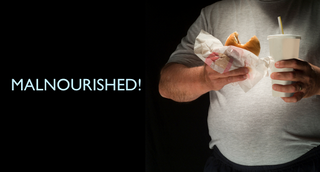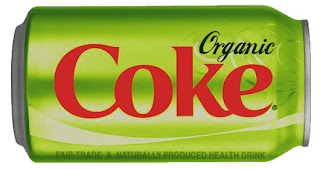 When I talk about health, I generally like to focus on universals–that is, what is true for everybody across the board, and not just the nuances of one diet or another. For example, drinking the juice of an açaía berry is not universal. It may be rich in antioxidants (although there is no scientific evidence to support this marketing claim), but it is not an essential food consumed by people all over the world. Having a diet rich in antioxidants, however, is a universal. Drinking water from a hole in Costa Rica is also not a universal, although maintaining sufficient hydration most certainly is. To pound the point home, there isn’t one person reading this that wouldn’t suffer the same fate were he or she to swan dive off a ten-story building. That’s because everybody is subject to the law of gravity–it’s universal, get it?
When I talk about health, I generally like to focus on universals–that is, what is true for everybody across the board, and not just the nuances of one diet or another. For example, drinking the juice of an açaía berry is not universal. It may be rich in antioxidants (although there is no scientific evidence to support this marketing claim), but it is not an essential food consumed by people all over the world. Having a diet rich in antioxidants, however, is a universal. Drinking water from a hole in Costa Rica is also not a universal, although maintaining sufficient hydration most certainly is. To pound the point home, there isn’t one person reading this that wouldn’t suffer the same fate were he or she to swan dive off a ten-story building. That’s because everybody is subject to the law of gravity–it’s universal, get it?
Okay so when it comes to dietary health, then, only four universals exist. The human diet must fulfill all four of the following:
- Act as an energy source—food provides us with energy, measured in calories; energy not immediately used is stored as fat.
- Act as a nutrient source—in the form of vitamins and minerals that are necessary for metabolism, regulation and tissue repair.
 Provide water for proper hydration—some “experts” believe that we get all the fluids we need from our food, but I am not one of them; no doubt, though, that diets high in plant-based sources get a good portion of their daily water replenishment from food.
Provide water for proper hydration—some “experts” believe that we get all the fluids we need from our food, but I am not one of them; no doubt, though, that diets high in plant-based sources get a good portion of their daily water replenishment from food.- Maintain a beneficial gut environment—we now know that the foods we eat directly influence our gut microbiota: the organisms that inhabit our intestines and, among other things, help the digestive process.
That’s it. A healthy diet should fulfill these four universal requirements in the most efficient way. This is a point worth elaborating: While many diets (and I’m speaking of a way of eating here, not a fad diet, per se) may fulfill all four universals, they may not do so efficiently. This is likely the case for the majority of people on the typical western diet (some whole foods, lots of processed foods), which is high in calories and low in nutrients. These people often get their necessary nutrients, but at the expense of having to eat more food to do so. They are not malnourished, but instead over-nourished. Think about it, a diet low in essential nutrients will cause the body to communicate, “More nutrients, please!” in the only way it knows how: By increasing the appetite.
 Other diets, like those based on junk food, candy, and/or near-starvation (anorexia) lead to none of the universal being fulfilled, which causes malnutrition, and eventually the breakdown of the body.
Other diets, like those based on junk food, candy, and/or near-starvation (anorexia) lead to none of the universal being fulfilled, which causes malnutrition, and eventually the breakdown of the body.
So, again, the healthiest diets fulfill the four universals most efficiently. But what’s the best diet for you? The one that fulfills all four universals with the least amount of food.
Now to say there is one diet that can fulfill this requirement for all people would be lie…because everybody is different. My body type is such that I need lots of protein. When I eat carbohydrate-rich meals, regardless of the source, I get weak and shaky within an hour. Thus, I need protein in every meal. Because of this personal nuance, I find that concentrated sources (meat, eggs, dairy) work best for me. This is NOT a universal; it is a nuance of my dietary needs. Believe me, I know plenty of people that thrive on a predominantly plant-based diet. Physiological variability I tell you.
That’s why I say stick to the universals. If veganism gets you there, then groovy, man. If it’s raw foodism—rock out. All that matters is that the four universals are most efficiently met.
Don’t get caught up into dietary nuances. Eat the widest variety of whole, natural foods that your body likes and craves, and try to get everything you need nutritionally with the least amount of food possible. I promise that you’ll get closer to achieving optimal nutrition by following these principles. It’s the human variability that throws the monkey-wrench into most popular diets, but universal is universal, so keep that in mind every time you eat. And if your way of eating already fulfills all four dietary universals, then you’re doing just fine.

















